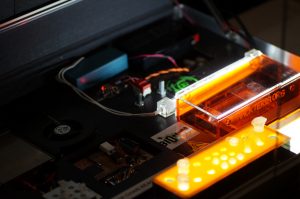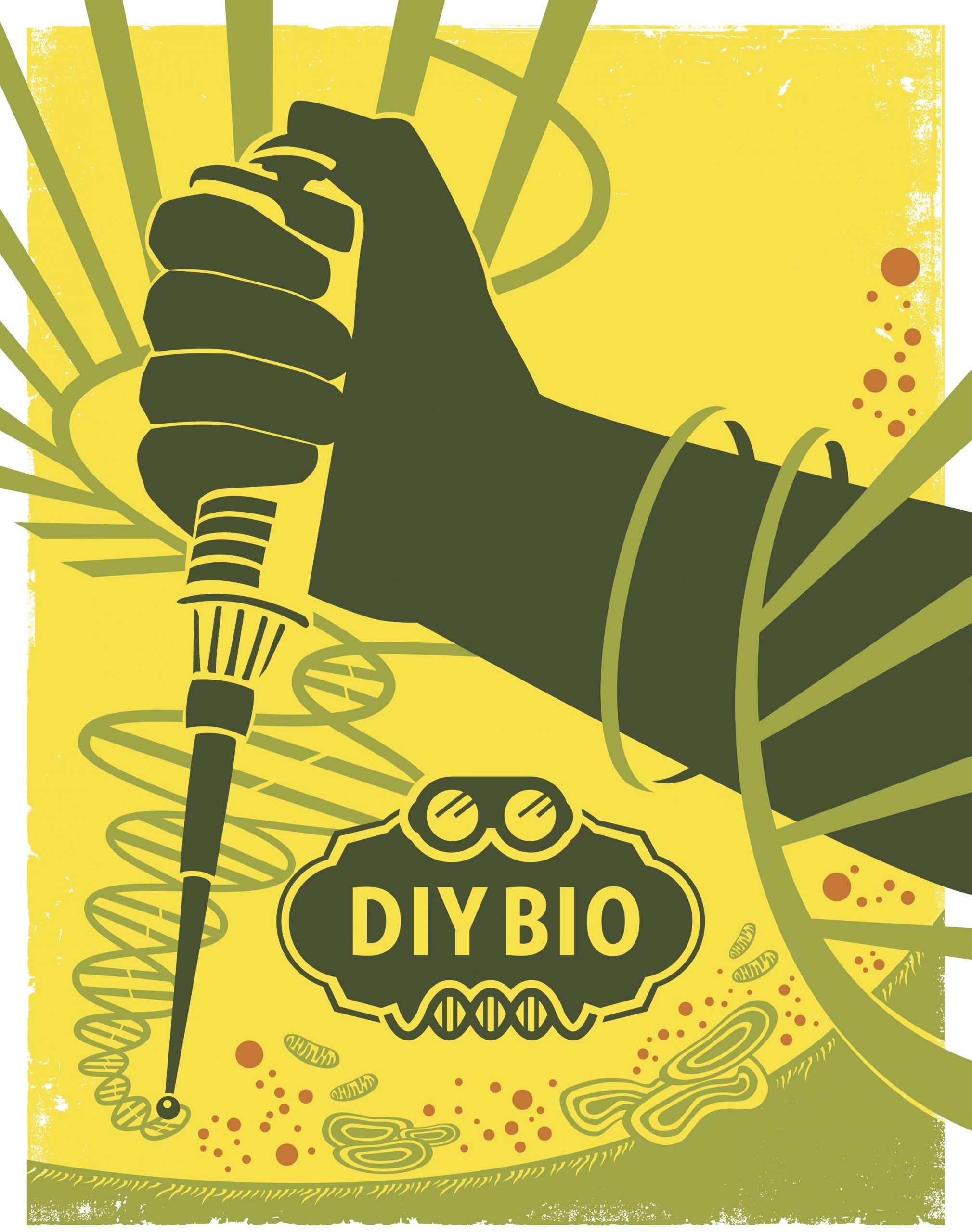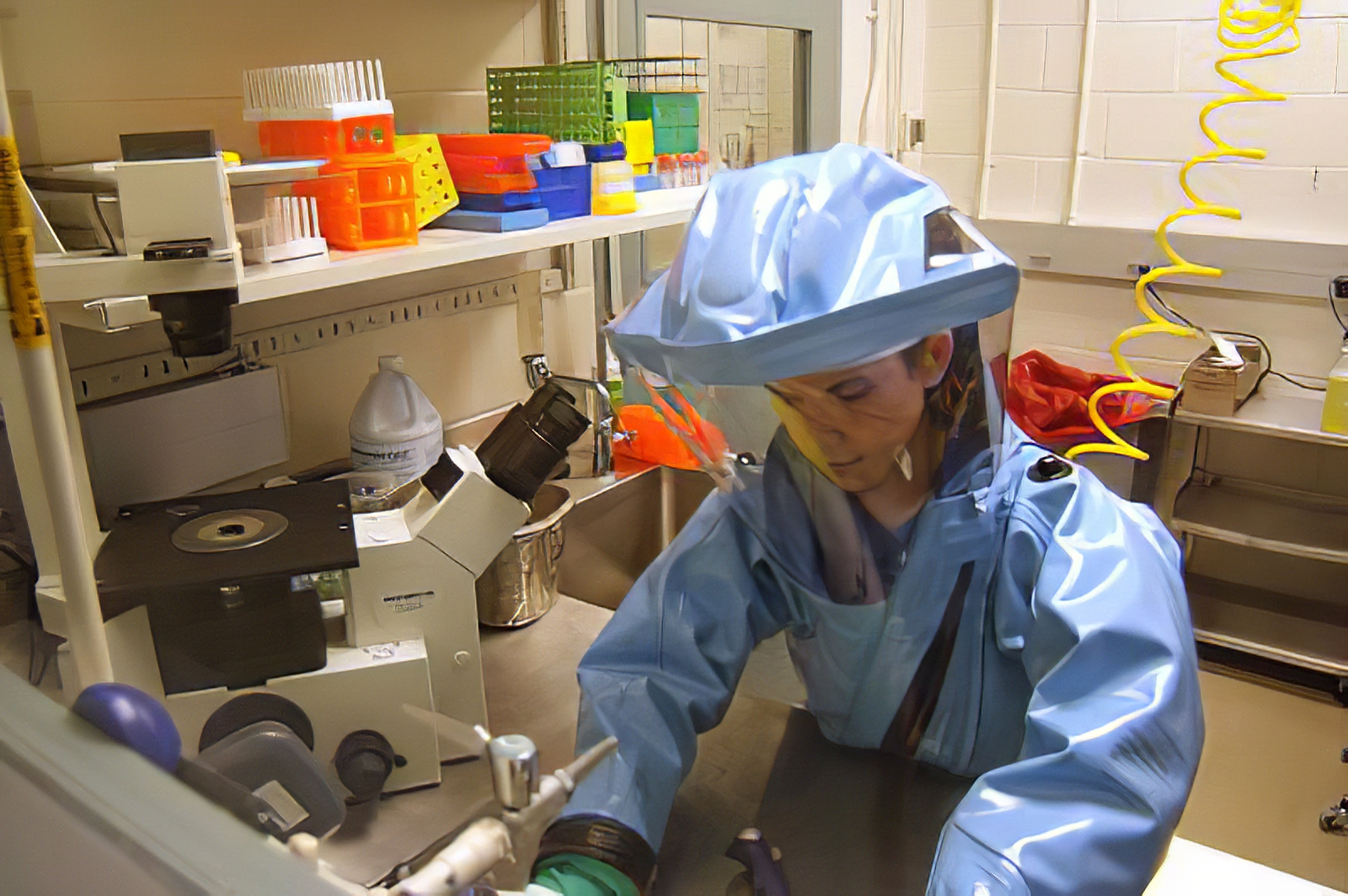Biosecurity: Do synthetic biologists need a licence to operate?
A recent article in New York Times about DIY biology and biohacking sparked a vigorous discussion about biosecurity and regulation of synthetic biology.
The article starts with the rather sensationalist title, As D.I.Y. Gene Editing Gains Popularity, ‘Someone Is Going to Get Hurt’. In it Emily Baumgaertner explores DIY biology, with a particular take on security. Through personal stories and particual incidents, this story has a particularly negative tone, essentially portraying DIY biology as risky towards the practitioners and the society.

Advances in gene editing technology and the drop in costs make it possible for individuals to perform more sophisticated molecular biology experiments in private spaces. This hobby attracts a variety of people and has been hailed as a way to democratise genetic engineering.
However, a few recent stunts such as attempting to self-edit to increase muscle content or gene-edit to reduce HIV virus content raise concerns about what are the hazards of individuals with gene-editing capabilities.
A more dangerous scenario would involve the—intentional or unintentional—creation of or modification of human pathogens (as shown by the reconstruction of a horsepox virus using commercially available DNA). Professor George Church, who was quoted in the New York Times article, warns that it is straightforward to enhance pathogens, and he mentions that “anyone who does synthetic biology should be under surveillance, and anyone who does it without a license should be suspect”. Professor Drew Endy responded in a light tone, creating a “Synthetic Biology License Generator”. But should you really need a license to do synthetic biology experiments?
George Church: Anyone who does synthetic biology should be under surveillance, and anyone who does it without a license should be suspect.
Inadequate regulation frame

The regulations that govern synthetic biology are not designed for synthetic biology, and are inadequate to regulate newer gene editing applications (such as CRISPR editing). The current frame focuses on genetically modified products on not on the proceedures to make them. Also, there are different laws in Europe, US, and other countries, laws that mostly reflect the attitudes towards GMOs. Regulation is the first step towards responsible use of synthetic biology and biohacking; hobbyists should be aware of what is legal and safe to do and law enforcement should know what they should keep an eye for.
An easy—but extreme—option is to completely ban genetic modifications outside designated labs (citizen scientists in parts of Germany may face up to three years in prison for breaking that law). However, treating all genetic engineering the same, without differentiating between potentially dangerous and proven-to-be-safe experimentation is not optimal. This would stifle potentially interesting research findings outside mainstream laboratories, obstruct innovation, and feed public distrust for synthetic biology (perceived as a de facto obscure and inherently dangerous discipline). DIY biologists should continue their operations, educate themselves and the public, and explore the biological world. The communities are willing to cooperate with the authorities and their principles include transparency and openness.
Modifying organisms is not easy
 Despite what is portrayed in the media, genetic engineering is not something that “any idiot can do”. As Dr Devang Mehta argues in a previous post, even doing simple experiments in bacteria can be tricky, even in fully equipped laboratories. Doing more elaborate and extensive modifications is practically impossible for anyone without years of experience and high-level training, and even then with high failure rates. Therefore, the creation and release of pathogens by ill-wishing individuals is not a considerable threat at the moment. That of course may change in the future, as automation and computer aided design advance. Nevertheless, as knowledge and understanding of biological systems increase, so will our ability to counter potential biothreats more effectively. Crime prevention should also be informed and be alert for different outcomes, and that can be achieved by adequate training and effective risk assessment.
Despite what is portrayed in the media, genetic engineering is not something that “any idiot can do”. As Dr Devang Mehta argues in a previous post, even doing simple experiments in bacteria can be tricky, even in fully equipped laboratories. Doing more elaborate and extensive modifications is practically impossible for anyone without years of experience and high-level training, and even then with high failure rates. Therefore, the creation and release of pathogens by ill-wishing individuals is not a considerable threat at the moment. That of course may change in the future, as automation and computer aided design advance. Nevertheless, as knowledge and understanding of biological systems increase, so will our ability to counter potential biothreats more effectively. Crime prevention should also be informed and be alert for different outcomes, and that can be achieved by adequate training and effective risk assessment.
Synbio community takes biosecurity seriously
The risk of dual use of synbio exists though. Synthetic biologists are aware of them, and include ethical and societal considerations in their research. Biosecurity sessions are common in synbio meetings (also see Biosecurity and synthetic biology: it is time to get serious). The FBI gives a presentation and informs iGEM students yearly at the Giant Jamboree, while there are initiatives to assess potential biothreats. Gene synthesis companies screen DNA orders against parts from pathogenic organisms (though at-home gene synthesisers may remove this checkpoint). That is in stark contrast with cybersecurity for example, which developed after computer applications were well-embedded in our lives.
DIY biology has its role in synthetic biology. It reflects the culture of openness and transparency in the field, a feature that actually increases safety by including and addressing public concerns. Though it should be clear that some experiments cross the line (such as human experimentation or work with human pathogens), fear and unnecessary regulation burden can only backfire and hinder the advancement of biotechnology. And I don’t think that biohackers need a licence; they need to be encouraged and allowed to cultivate transparency and a sense of responsibility within their communities. And so far they are doing a great job.

Disclaimer: The opinions stated in this article are personal and do not necesserily reflect PLOS synbio community as a whole.
